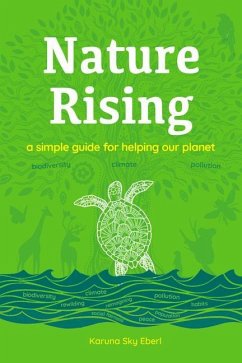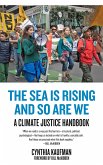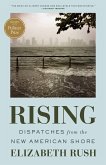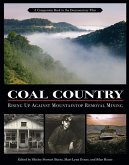Nature Rising is a simple overview of the main problems facing our natural world -- biodiversity loss, climate change, and pollution -- and what everyday people can do about them. It's set in a welcoming tone of kindness and hope, and filled with motivation to get out there and do something. You need this book if: You feel bummed out worrying about the future. You are a sucker for wildlife, and smile when you see a bird. You want more knowledge than a list of plastics to give up or a lecture on flying. You are confused, overwhelmed, and want to do something. You are a happy, hopeful couch potato who loves science. You know an activist who needs good reading material in jail. You are a community planner or politician. You are worried about your kids' future. You need a reminder that you are not alone. Our troubles: Many of us are concerned about the environment, but are confused about what we, as mere mortals, can actually do to help. Nature Rising explains in layperson's terms the main problems facing our natural world -- biodiversity loss, global warming, and pollution -- and helps to clarify some of the headlines, like monarch butterflies, border walls, and ocean acidification. It also explores how the underlying drivers of these problems, such as racism, poverty, population, stuff, and encouraging competition over cooperation, all add up to bad news for wild things. The good news: Once we are more clear about the problems we are up against, each of us can make a real difference. Nature Rising helps us discover and choose which steps are compatible with our own set of circumstances -- whether that is reimagining lawn or rewilding the town roundabout -- and discarding the ones we don't have to agonize over. A bigger picture: Things are pretty bleak, but we have a shot at a better future. Never before have so many people wanted to help nature. However, for this revolution to bring a lasting era of balance with wild things, we need a clear vision of the world we want to create. In the end, our biggest hurdles are not ppms of carbon, or plastic-filled waters, they are our attitudes, our separation from nature. With each generation we have an increasingly diminished world. Nature Rising helps us reimagine one where the goal for nature is not barely maintaining it, but recapturing its vibrancy. A handbook for humans making change:: It is scary to face the future, and exhausting to grieve over all we are losing. It's humbling and difficult to drop our old habits. Add to that, environmentalism is intimidating; there is always so much we don't know, and so many fingers wagging, waiting for us to do the wrong thing. Nature Rising helps navigate these waters. It is a tool for change, welcoming all who pick it up. We are in this together. The more we can learn, the more we can adapt, pool our knowledge, and perhaps even move forward into a more equitable and peaceful future, where wildlands and wild things are given ample space to be vibrant, and where people, in turn, flourish. Extra: The publishers are using a portion of the book's proceeds to send copies of Nature Rising to policymakers and politicians who might benefit from the content, as well as to community leaders and students who might otherwise lack the financial means to buy one themselves.
Bitte wählen Sie Ihr Anliegen aus.
Rechnungen
Retourenschein anfordern
Bestellstatus
Storno








